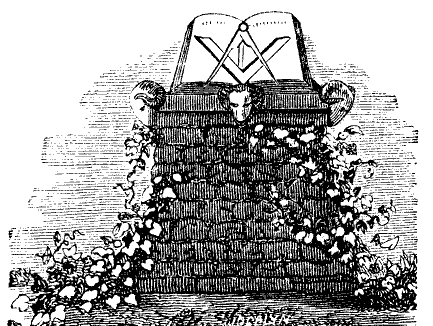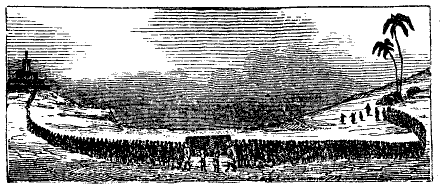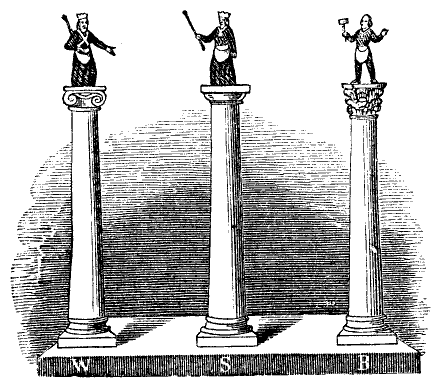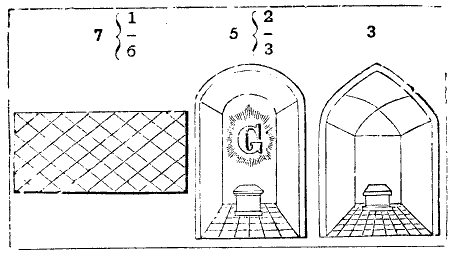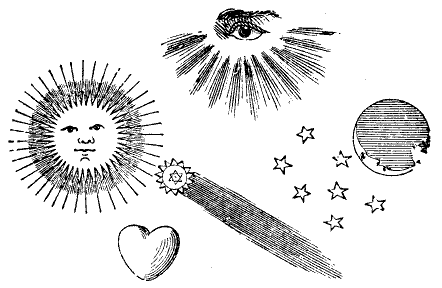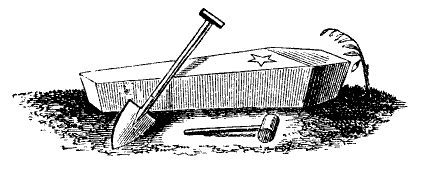THE MASONIC MANUAL
A pocket Companion for the Initiated
Compiled and arranged by Robert Macoy
Revised Edition 1867
V.
MASTER MASON.
FREE-MASONRY in every degree, as before remarked, is progressive. A knowledge of it can only be attained by time, patience and application. In the first degree, we are taught the duties we owe to God, our neighbor and ourselves. In the second, we are more thoroughly inducted into the mysteries of moral science, and learn to trace the goodness and majesty of the Creator, by minutely analyzing his works. But the third degree is the cement of the
whole. It is calculated to bind men together by mystic points of fellowship, as in a bond of fraternal affection and Brotherly Love. It is among brethren of this degree, that the ancient landmarks of the order are preserved, and it is from them that we derive that fund of information which none but ingenious and expert masons can supply.
It is also from brethren of this degree, that the rulers of the Craft are selected; because it is only from those who are capable of giving instruction, that we can reasonably expect to receive it.
SECTION I.
A knowledge of the first section of this degree is indispensable to every brother who would make himself useful in the ceremonial transactions of a lodge.
The following passage of Scripture is introduced during the ceremonies:
"Remember now thy Creator in the days of thy youth, while the evil days come not, nor the years draw nigh, when thou shalt say, I have no pleasure in them; while the sun, or the light, or the moon, or the stars, be not darkened, nor the clouds return after the rain: in the day when the keepers of the house shall tremble, and the strong men shall bow themselves, and the grinders cease because they
are few, and those that look out of the windows be darkened, and the doors shall be shut in the streets when the sound of the grinding is low, and he shall rise up at the voice of the bird, and all the daughters of music shall be brought low; also, when they shall be afraid of that which is high, and fears shall be in the way, and the almond-tree shall flourish, and the grasshopper shall be a burden, and desire shall fail; because man goeth to his long home, and the mourners go about the streets: or ever the silver cord be loosed, or the golden bowl be broken, or the pitcher be broken at the fountain, or the wheel broken at the cistern. Then shall the dust return to the earth as it was; and the spirit shall return unto GOD who gave it."
OR THE FOLLOWING ODE MAY BE SUNG:
Music - "Bonny Doon."LET us remember in our youth,
Before the evil days draw nigh,
Our GREAT CREATOR, and his TRUTH!
Ere memory fail, and pleasure fly;
Or sun, or moon, or planet's light
Grow dark, or clouds return in gloom;
Ere vital spark no more incite;
When strength shall bow, and years consume.Let us in youth remember HIM!
Who formed our frame, and spirits gave,
Ere windows of the mind grow dim,
Or door of speech obstructed wave:
When voice of bird fresh terrors wake,
And Music's daughters charm no more,
Or fear to rise, with trembling shake
Along the path we travel o'er.In youth, to GOD, let memory cling,
Before desire shall fail, or wane,
Or e'er be loosed life's silver string,
Or bowl at fountain rent in twain:
For man to his long home doth go,
And mourners group around his urn;
Our dust, to dust again must flow,
And spirits unto GOD return.* * * * * * * *
All the implements in masonry, indiscriminately, properly belong to brethren of this degree, and may be illustrated in this section. The TROWEL, however, is more particularly referred to.
THE TROWEL
Is an instrument made use of by operative masons, to spread the cement which unites the building into one common mass; but we, as free and accepted masons, are taught to make use it for the more noble and glorious purpose of spreading the cement of Brotherly Love and affection; that cement which unites us into one sacred band, or society of friends and brothers, among whom no contention should ever exist, but that noble contention, or rather emulation, of who best can work and best agree.
SECTION II.
This section recites the historical traditions of the Order, and presents to view a picture of great moral sublimity. It exemplifies an instance of virtue and firmness, seldom equaled, and never excelled.
* * * * * * * *
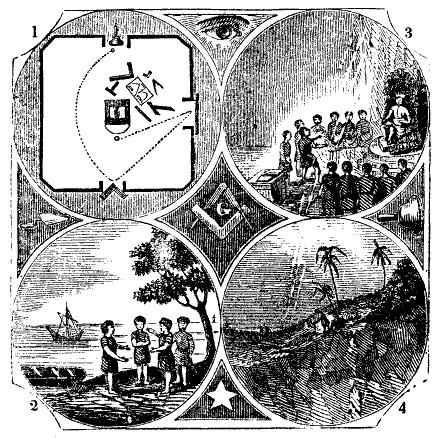
* * * * * * * *
Funeral Dirge.
Music - "Pleyel."
Solemn strikes the fun'ral chime.
Notes of our departing time;
As we journey here below,
Through a pilgrimage of wo!Mortals, now indulge a tear,
For mortality is near!
See how wide her trophies wave
O'er the slumbers of the grave!Here another guest we bring, -
Seraphs of celestial wing,
To our fun'ral altar come,
Waft this friend and brother home.There, enlarged, thy soul shall see
What was veiled in mystery;
Heavenly glories of the place
Show his Maker face to faceLord of all! below - above -
Fill our hearts with truth and love;
When dissolves our earthly tie,
Take us to thy Lodge on high* * * * * * * *
The following prayer is used at the raising of brother to the sublime degree of Master Mason:
THOU, O GOD! knowest our down-setting an our up-rising. and understandeth our thoughts afa off. Shield and defend us from the evil intentions
of our enemies, and support us under the trials and afflictions we are destined to endure, while traveling through this vale of tears. Man that is born of a woman is of few days, and full of trouble. He cometh forth as a flower, and is cut down; he fleeth also as a shadow, and continueth not. Seeing his days are determined, the number of his months are with thee; thou hast appointed his bounds that he cannot pass: turn from him that he may rest, till he shall accomplish his day. For there is hope of a tree, if it be cut down, that it will sprout again, and that the tender branch thereof will not cease. But man dieth and wasteth away; yea, man giveth up the ghost, and where is he? As the waters fail from the sea, and the flood decayeth and drieth up, so man lieth down, and riseth not up till the heavens shall be no more. Yet, O Lord! have compassion on the children of thy creation; administer them comfort in time of trouble, and save them with an everlasting salvation. So mote it be Amen.
* * * * * * * *
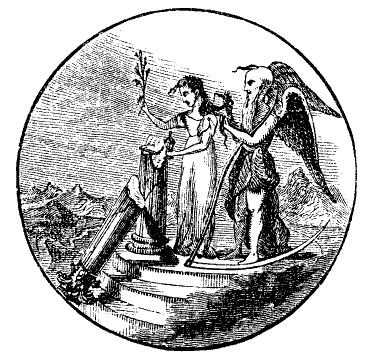
SECTION III.
This section illustrates certain hieroglyphical emblems and inculcates many useful and impressive moral lessons. It also details many particulars elative to the building of the Temple at Jerusalem.
This magnificent structure was founded in the fourth year of the reign of SOLOMON, on the second day of the month Zif, being the second month of the sacred year. It was located on Mount Moriah,
near the place where Abraham was about to offer up his son Isaac, and where David met and appeased the destroying angel. Josephus informs us, that.
It is said to have been supported by fourteen hundred and fifty-three columns, and two thousand nine hundred and six pilasters, all hewn from the finest Parian marble. There were employed in its building, three Grand Masters; three thousand and three hundred Masters or Overseers of the work; eighty thousand Fellow Crafts; and seventy thousand Entered Apprentices, or bearers of burens. All these were classed and arranged in such
manner, by the wisdom of Solomon, that neither envy, discord, nor confusion, was suffered to interrupt or disturb the peace and good fellowship which prevailed among the workmen.
In front of the magnificent porch, were placed the two celebrated pillars, - one on the left hand and one on the right hand. They are supposed to have been placed there as a memorial to the children of Israel, of the happy deliverance of their forefathers from Egyptian bondage, and in commemoration of the miraculous pillars of fire and cloud. The pillar of fire gave light to the Israelites and facilitated their march, and the cloud proved darkness to Pharaoh and his host, and retarded their pursuit. King Solomon, therefore, ordered these pillars to be placed at the entrance of the temple, as the most conspicuous part, that the children of Israel might have that happy event continually before their eyes, in going to and returning from divine worship.
* * * * * * * *
In this section are also explained a variety of appropriate emblems, with which the skilful brother will not fail to make himself familiarly acquainted. Among them are the following:
THE THREE STEPS,
Usually delineated upon the master's carpet, are emblematical of the three principal stages of human life, viz: youth, manhood and age. In youth, as entered apprentices, we ought industriously to occupy our minds in the attainment of useful knowledge: in manhood, as fellow crafts, we should apply our knowledge to the discharge of our respective duties to God, our neighbor, and ourselves; that so, in age, as master masons, we may enjoy the happy reflection consequent on a well-spent life, and die in the hope of a glorious immortality.
THE POT OF INCENSE
Is an emblem of a pure heart, which is always an acceptable sacrifice to the Deity; and, as this glows with to fervent heat, so should our hearts continually glow with gratitude to the great and beneficent Author of our existence, for the manifold blessings and comforts we enjoy.
THE BEE HIVE
Is an emblem of industry, and recommends the practice of that virtue to all created beings, from the highest seraph in heaven, to the lowest reptile of the dust. It teaches us, that as we came into the world rational and intelligent beings, so we should ever be industrious ones; never sitting down contented while our fellow-creatures around us are in want, especially when it is in our power to relieve them, without inconvenience to ourselves.
When we take a survey of nature, we view man, in his infancy, more helpless and indigent than the orutal creation; he lies languishing for days, months and years, totally incapable of providing sustenance for himself, of guarding against the attack of the wild beasts of the field, or sheltering himself from the incelemencies of the weather. It might have pleased the great Creator of heaven
and earth, to have made man independent of all other beings; but, as dependence is one of the strongest bonds of society, mankind were mad dependent on each other for protection and security as they thereby enjoy better opportunities of fulfilling the duties of reciprocal love and friendship. Thus was man formed for social and active life the noblest part of the work of God; and he that will so demean himself, as not to be endeavoring to add to the common stock of knowledge and understanding, may be deemed a drone in the hive of nature, a useless member of society, and unworthy of our protection as masons.
THE BOOK OF CONSTITUTIONS, GUARDED BY THE TYLER'S SWORD,
Reminds us that we should be ever watchful and guarded in our thoughts words and actions, particularly when before the enemies of masonry; ever bearing in remembrance those truly masonic virtues, silence and circumspection.
THE SWORD, POINTING TO A NAKED HEART,
Demonstrates that justice will sooner or later overtake us; and although our thoughts, words and actions may be hidden from the eyes of man, yet that
All-seeing Eye
whom the SUN, MOON, and STARS obey, and under whose watchful care, even COMETS perform their stupendous revolutions, pervades the inmost recesses of the human HEART, and will reward us according to our merits.
THE ANCHOR AND ARK
Are emblems of a well-grounded hope, and a well-spent life. They are emblematical of that divine. Art, which safely wafts us over this tempestuous sea of troubles, and that Anchor, which shall safely moor us into a peaceful harbor, where the wicked cease from troubling and the weary shall find rest.
THE FORTY-SEVENTH PROBLEM OF EUCLID.
This was an invention of our ancient friend and brother, the great Pythagoras, who, in his travels through Asia, Africa and Europe, was initiated into several orders of priesthood, and raised to the sublime degree of a master mason. This wise philosopher enriched his mind abundantly in a general knowledge of things, and more especially in geometry, or masonry. On this subject, he drew out many problems and theorems; and among the most distinguished, he erected this, which, in the joy of his heart, he called Eureka, signifying, in the Grecian language, I have found it; and upon the discovery of which, he is said to have sacrificed a hecatomb. It teaches masons to be general lovers of the arts and sciences.
THE HOUR-GLASS
Is an emblem of human life. Behold! how swiftly the sands run, and how rapidly our lives are drawing to a close! We cannot without astonishment behold the little particles which are contained in this machine; - how they pass away almost imperceptibly! and yet, to our surprise, in the short space of an hour they are al exhausted. Thus wastes man! To-day, he puts forth the tender leaves of hope; to-morrow, blossoms and hears his
blushing honors thick upon him; the next day comes a frost, which nips the shoot; and when he thinks his greatness is still aspiring, he falls, like autumn leaves, to enrich our mother earth.
THE SCYTHE
Is an emblem of time, which cuts the brittle thread of life, and launches us into eternity. Behold! what havoc the scythe of time makes among the human race! If by chance we should escape the numerous evils incident to childhood and youth, and with health and vigor arrive to the years of manhood; yet, withal, we must soon be cut down by the all devouring scythe of time, and be gathered into the land where our fathers have gone before us.
* * * * * * * *
CHARGE TO THE CANDIDATE.
BROTHER: - Your zeal for our institution, the progress you have made in our mysteries, and your steady conformity to our useful regulations, have pointed you out as a proper object for this peculiar mark of our favor.
Duty and honor now alike bind you to be faithful to every trust; to support the dignity of your character on all occasions; and strenuously to enforce, by precept and example, a steady obedience to the tenets of Free-masonry. Exemplary conduct on your part, will convince the world, that merit is the just title to our privileges, and that on you our favors have not been undeservedly bestowed.
In this respectable character you are authorized to correct the irregularities of your less informed brethren; to fortify their minds with resolution against the snares of the insidious, and to guard them against every allurement to vicious practices. To preserve unsullied the reputation of the fraternity, ought to be your constant care; and, therefore, it becomes your province to caution the inexperienced against a breach of fidelity. To your inferiors in rank or office, you are to recommend obedience and submission; to your equals, courtesy and affability; to your superiors, kindness
and condescension. Universal benevolence you are zealously to inculcate; and by the regularity of your own conduct, endeavor to remove every aspersion against this venerable institution. Our ancient landmarks you are carefully to preserve, and not suffer them, on any pretence, to be infringed, or countenance a deviation from our established customs.
Your honor and reputation are concerned in supporting with dignity, the respectable character you now bear. Let no motive, therefore, make you swerve from your duty, violate your vows, or betray your trust; but be true and faithful, and imitate the example of that celebrated artist whom you have this evening represented. Thus you will render yourself deserving of the honor which we have conferred, and worthy of the confidence we have reposed in you.

